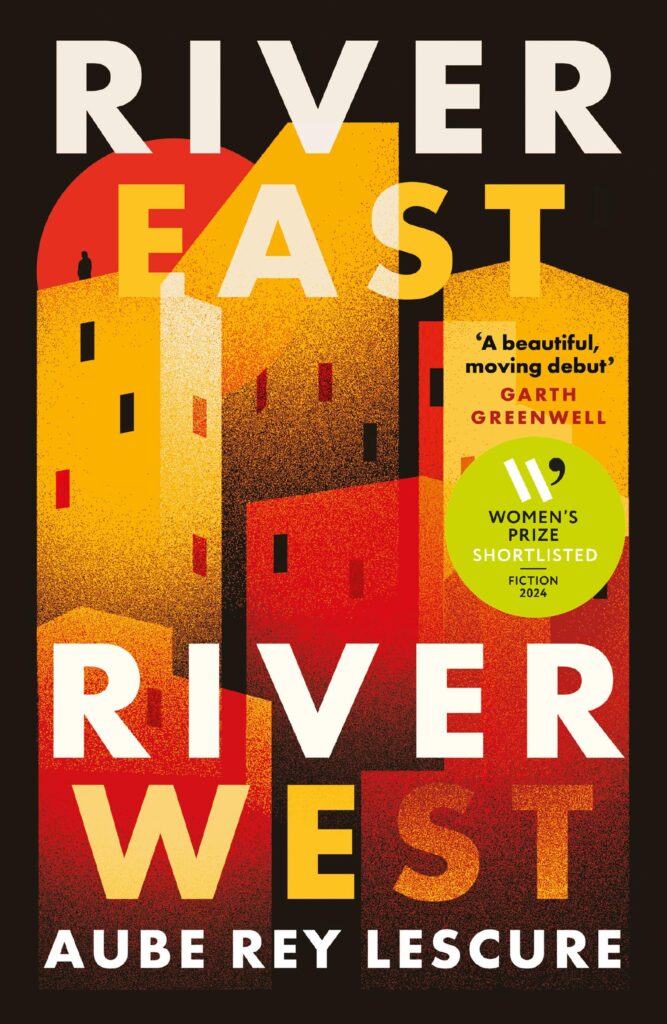River East, River West by Aube Rey Lescure is a mesmerising reversal of the east–west immigrant narrative set against China’s economic boom.
A deeply moving exploration of race, identity and family, of capitalism’s false promise and private dreams, this novel is one of the debut releases longlisted for the 2024 Women’s Prize for Fiction.
Set in Shanghai in the 2000s, it’s a novel about reinvention. It’s original, it’s funny, and it’s sometimes heartbreaking as well.
Monica Ali

Describe your book in one sentence as if you were telling a friend.
River East, River West is a coming-of-age and family drama about the uneasy yet transformative relationship between Alva, a biracial teenage girl growing up in Shanghai with her American expat mother, and her new Chinese stepfather, a mysterious businessman called Lu Fang.
What inspired you to write your novel?
I was raised in northern China and Shanghai by my French expatriate mother, and attended Chinese public schools for most of my life until I left for the U.S. as a teen. Migration, expatriation, borders, and identity have been important themes my whole life, and I wanted to capture the particular social and racial dynamics of China in the 2000s, during the so-called “golden age” for expats rushing to take part in China’s economic boom, and the impact of western emigration on Chinese society–told through the lens of two generations of a family.
Which part of the book was the most fun to write? Which was the most challenging?
Lu Fang’s sections, which I added later on in the revision process, were most fun to write‚ they were puzzle pieces that spanned decades and needed to be interwoven into the frame narrative, converging towards the present. I treated each like a short story with a prompt: write about a weekend trip centered around the 1994 World Cup, write about a poker game during Lunar New Year, write a whole section that takes place over a taxi ride across Shanghai. The most challenging sections were, undoubtedly, the ones of heartbreaking losses.
If you could take one book to a desert island, what would it be and why?
Roberto Bolaño’s 2666. It’s a book that feels magnetic, infinite, and each read can open a crypt and lead down a new tunnel towards the mysteries of existence. It wrestles with a lot of darkness, but also feels like it contains the soul of the world.
Where is your favourite place to write?
In the sweltering heat of my grandparents’ house in rural France, shutters closed to trap in the night’s remaining cool air, typing away in a cave-like environment while the cicadas hum their symphony in the distance.
If you hadn’t been a writer, what would you be doing now? Where would you be?
I’d be a filmmaker staking out a marshland at dawn, perhaps, trying to get a perfect shot of the sky’s hue and still waters. I love cinema, and always try to incorporate a visual sense of mood to my writing.








